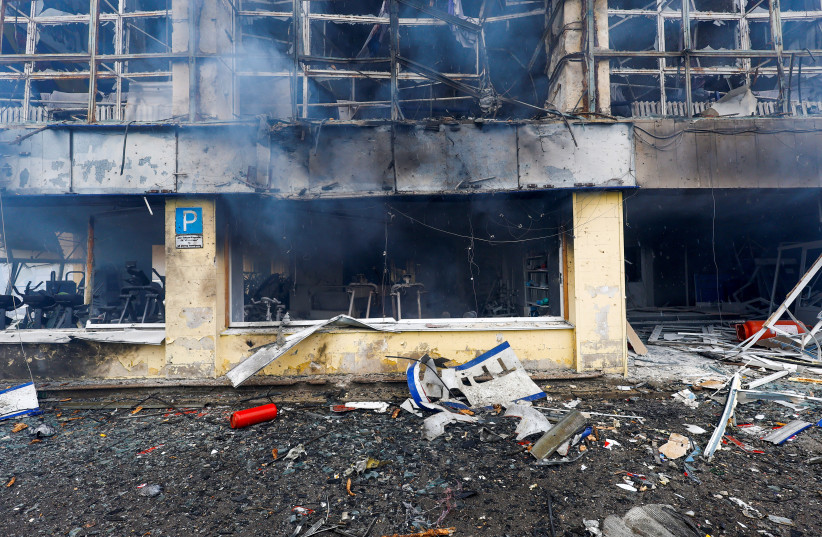Russia, the United States and the European Union sat around the same negotiating table in Vienna to negotiate a return to the Iran deal in recent days, even as the latter two imposed severe sanctions on the former over the war in Ukraine.
While they try to compartmentalize, it seems unrealistic, given the magnitude of Russia’s attack and the world’s response to it, that the war in Ukraine and the Iran talks will remain separate realms.
“The fact that Russia has now invaded Ukraine should not give Iran the green light to develop a nuclear weapon,” US State Department spokesman Ned Price said last week, when asked how one will impact the other.
Days later, Iran’s chief negotiator Ali Bagheri Kani returned from Tehran, where he was holding consultations, to Vienna with a hardened stance. Much of his team’s focus in recent days has been on the demand for the end to an International Atomic Energy Agency probe of possible military dimensions of Iran’s nuclear program.
France and the UK have firmly said no to ending the IAEA investigation, which is separate from the JCPOA, as it was in its original form. As such, Iran is blaming the West – rather than its own maximalist demands –- for the holdup in the talks.

Western diplomats in the Iran talks, like the UK’s Stephanie Al-Qaq and France’s Philippe Errera, have recently become more publicly vocal than they had been for most of the process and began calling the past week the “endgame” of the talks in their tweets.
The E3 – UK, France and Germany – and Americans have said that the talks will end soon, as the nonproliferation benefits of the JCPOA are becoming irrelevant. Israel, of course, has argued that those benefits are so paltry at this point that time has already run out to return to a deal that has not been strengthened or extended.
Time is of the essence for another reason, as well. The Western countries and Russia may be able to engage in Iran talks while clashing over Ukraine for now, but it seems unlikely that will last for long.
With war raging in Ukraine and Iran apparently in no rush to reach a nuclear agreement as it advances its nuclear program, Israel’s allies in Vienna have to choose how to proceed.
Some of the issues arising from the war in Ukraine directly impact the Iran talks, whether it’s a live test of how effective sanctions can be when countries unite, or the fluctuating price of oil because of the cancellation of the Nordstream2 gas pipeline.
One possible approach may be to say that now is the time to compromise in order to quickly reach a deal – the deal that US President Joe Biden repeatedly promised he would revive.
But the E3 and US could come to the realization that now is not the time to strengthen a Russian ally who, like Russia, is hell-bent on destroying another UN member state – Israel. And the threats from Russian President Vladimir Putin could remind them that they don’t want another rogue state with nuclear weapons.
Now that the West is showing unity and strength against Russia, there is no reason for it to show weakness when negotiating with Iran.
As it has with Russia, the West can stand up for itself against Iran and say its actions are unacceptable. Unlike with Russia, it is not too late to avoid the deadly consequences of the Iran nuclear program before the West reaches that conclusion.
